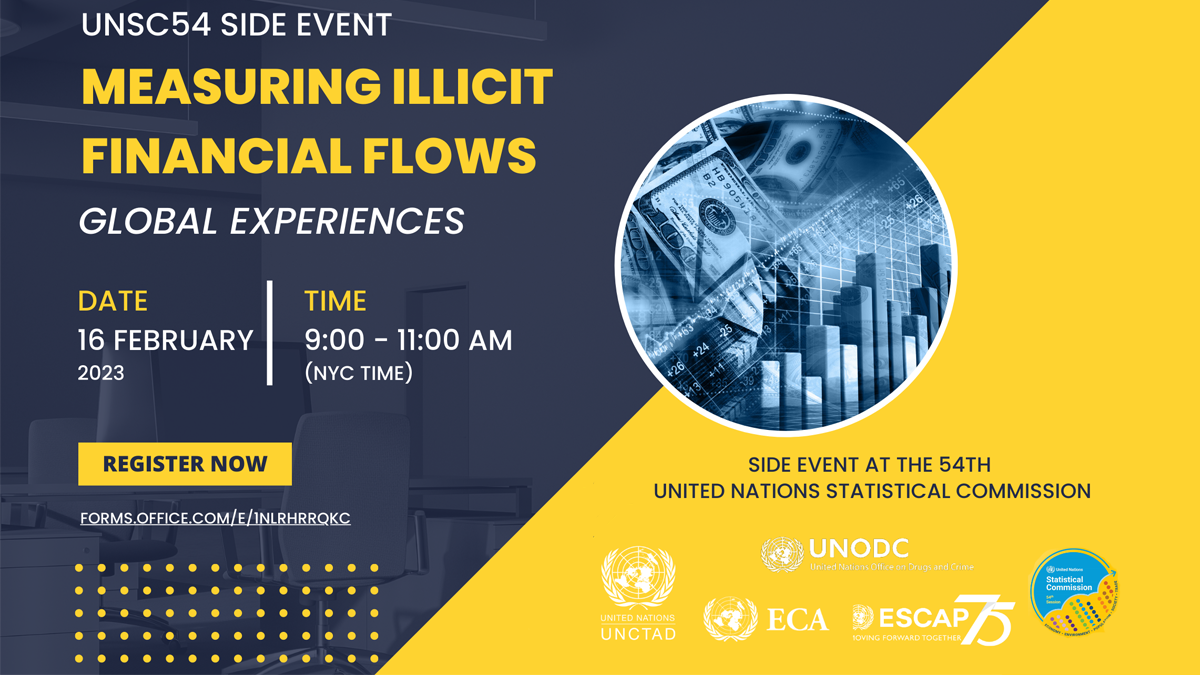
Illicit financial flows (IFFs) present themselves in different forms, such as corruption, tax avoidance and evasion, transnational organised crime, trade mis-invoicing and profit shifting among others. Global leaders have recognized the impact of IFFs on sustainable development financing.
UNCTAD and UNODC are custodian agencies of indicator 16.4.1 on the “total value of inward and outward illicit financial flows” and have published a Conceptual framework for the statistical measurement of illicit financial flows and Methodological Guidelines to measure tax and commercial IFFs, as well as crime related IFFs (drugs and wildlife trafficking, trafficking in persons and smuggling of migrants). The methods have been tested in 22 pioneering countries in Africa, Asia and Latin America.
On 16 November 2022, a resolution by the 2nd Committee of the General Assembly on illicit financial flows recognized the significant progress and availability of concepts and tested methods to measure illicit financial flows and encouraged “all Member States to report on Sustainable Development Goal indicator 16.4.1, using the methodology adopted by the Statistical Commission, and called upon the United Nations system entities, international organizations and donors to work in coordination with the custodian agencies to train national statistical offices and other entities in charge of reporting on illicit financial flows on these agreed methods”.
The objective of the side event is to showcase success stories in the measurement of tax and commercial IFFs and crime related IFFs and share key lessons that are critical to regularizing the production of data on SDG 16.4.1. The successes and lessons will be presented by country experts from different regions: Africa, Asia and Latin America.


